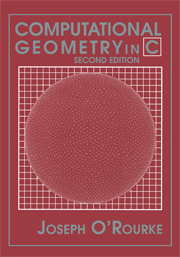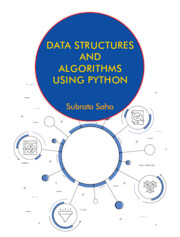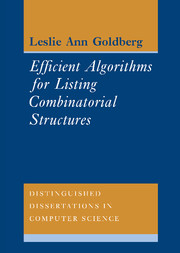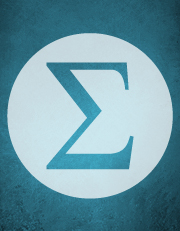LEDA
In the core computer science areas--data structures, graph and network algorithms, and computational geometry--LEDA is the first library to cover all material found in the standard textbooks. Written in C++ and freely available worldwide on a variety of hardware, the software is installed at hundreds of sites. This book, written by the main authors of LEDA, is the definitive account of how the system operates and how it can be used. The authors supply plentiful examples from a range of areas to show practical uses of the library, making the book essential for all researchers in algorithms, data structures and computational geometry.
- Definitive book on the only software library for geometric computing
- Written by authors of the library
- Covers the details of the library plus its use through examples
Reviews & endorsements
"LEDA presents a different sort of library, namely, one that supports the type of programming that is the basis of our standard algorithm and data structures courses... LEDA, the book, complements LEDA, the library... I find it both highly commendable and also somewhat mind-boggling that well-known researchers will take time to contribute in substantialways to the practice: commendable, because such work contributes to the vitality and progress of the practical side of our discipline, while simultaneously validating the need for fundamental research; and mind-boggling because I can only imagine the investment of time such a project requires. A measure of LEDA'S success can ben found in its use. At the time the book was written over 1500 institutions had intalled LEDA on local systems... And so, my hat is off to Kurt Mehlhorn and Stefan Naher for their fine contribution to our discipline." SIGACT News
"...a comprehensive treatment of the system and its use." Mathematical Reviews
Product details
June 2009Multiple copy pack
9780521109413
1034 pages
252 × 324 × 68 mm
2.22kg
120 b/w illus.
Out of stock in print form with no current plan to reprint
Table of Contents
- Preface
- 1. Introduction
- 2. Foundations
- 3. Basic data types
- 4. Numbers and matrices
- 5. Advanced data types
- 6. Graphs and their data structures
- 7. Graph algorithms
- 8. Embedded graphs
- 9. The geometry kernels
- 10. Geometry algorithms
- 11. Windows and panels
- 12. GraphWin
- 13. On the implementation of LEDA
- 14. Manual pages and documentation
- Bibliography
- Index.










